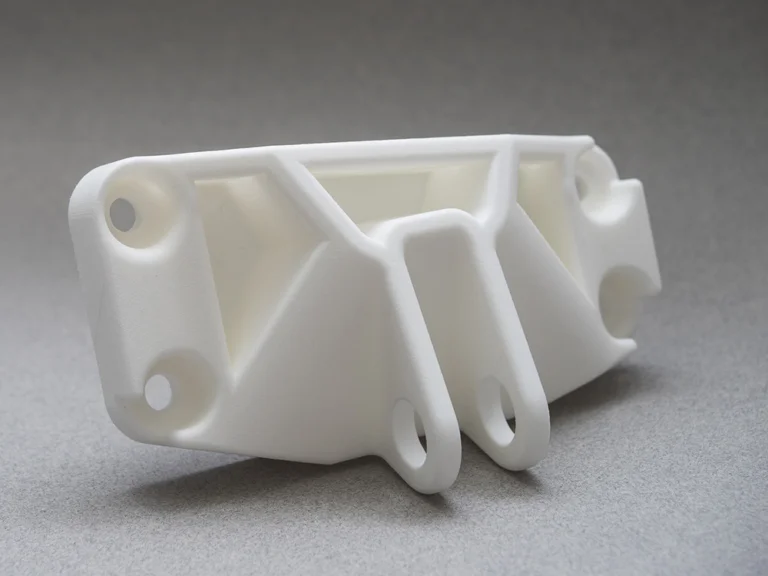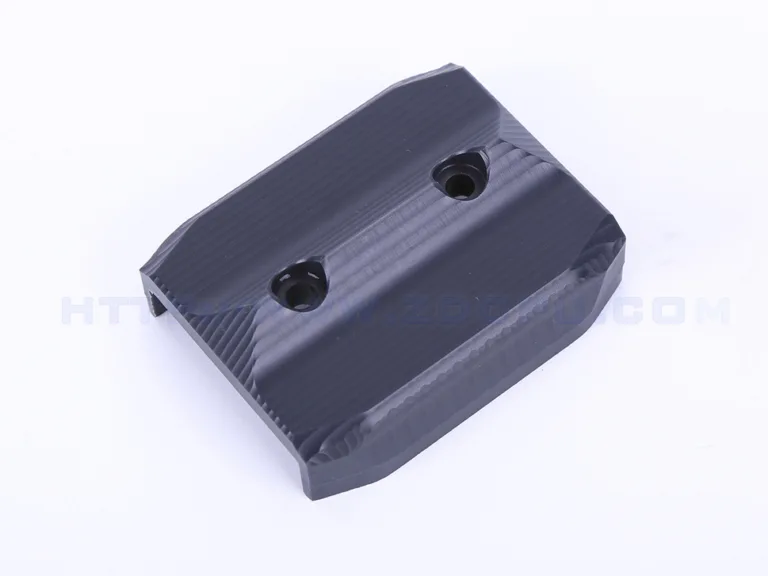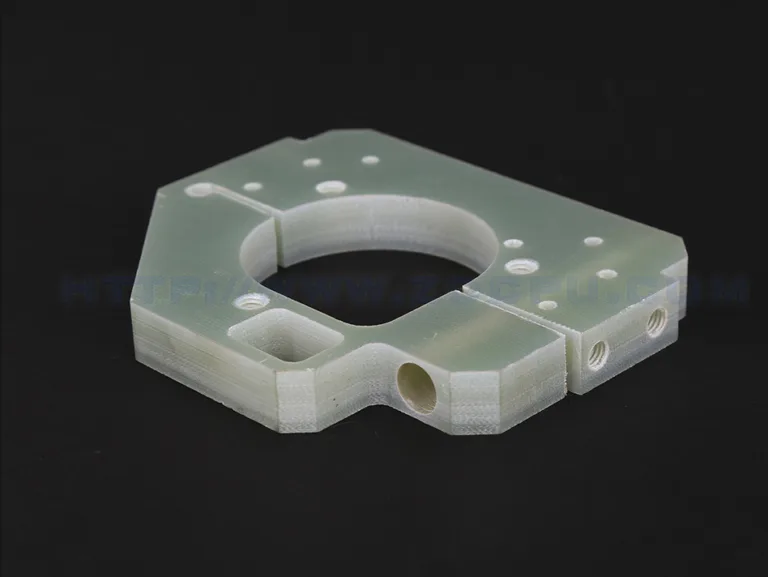Nylon is a type of synthetic polymer known as polyamide. Nylon and polyamide are essentially the same thing and are used interchangeably in most cases. However, in some technical or scientific discussions, “polyamide” is used as a more generic term to encompass a broader range of polymers within the polyamide family. It can include various types of polyamides, such as nylon 6, nylon 6/6, nylon 12, and so on, each with its own specific properties and characteristics. Therefore, nylon and polyamide refer to the same family of polymers, with nylon being a specific type of polyamide.
Nylon was developed by DuPont in the 1930s. It is a versatile material known for its exceptional strength, durability, and resistance to wear and abrasion. It is a versatile and popular material for plastic injection molding due to its excellent properties. Nylon is widely used in various industries, including automotive, aerospace, electronics, and consumer goods, for applications such as gears, bearings, electrical connectors, and structural components.
What Are the Processing Methods of Nylon?
How to manufacturer nylon? There are several processing methods used for nylon depend on the desired form and application. Here are the most common three processing techniques for nylon.
Nylon Injection Molding
Injection molding is the most common methods for producing nylon parts and components in medium to large volumes. Common nylon injection molding parts include nylon gears, nylon bushings, nylon grommet, etc.
Zhongde Nylon Injection Molding Service
Nylon Extrusion
Nylon can be extruded into various profiles like rods, tubes, sheets, and fibers/filaments. The extruder barrel temperatures are similar to injection molding. The extrudate is cooled and solidified using water baths or chill rolls.
Nylon CNC Machining
CNC machining involves using computer-controlled machines to selectively remove material from solid nylon workpieces to create the desired shape and features. It often use to produce complex shape and tight tolerances.
What Are the Properties of Injection Molding Nylon
Why Is Nylon Good for Injection Moulding?
Nylon exhibits several advantageous properties that make it a suitable material for injection molding applications.
- High tensile strength, comparable to some metals
- Excellent fatigue resistance, ideal for components under cyclic loading like gears
- Good impact and abrasion resistance
- Low coefficient of friction
- High maximum operating temperature up to 150°C for long-term exposure
- Higher melt temperature and heat resistance when reinforced with glass fibers
- Moisture absorption requires proper drying before molding to prevent defects
- Dimensional stability and low shrinkage rate of 1-2%
What Are the Disadvantages of Nylon?
While nylon offers excellent mechanical properties and chemical resistance, its has drawbacks that need to be addressed through design considerations, and precise process control.
- High moisture absorption leading to dimensional issues and defects
- Susceptibility to degradation from strong acids and bases
- Notch sensitivity causing reduction in impact strength
- UV degradation requiring stabilizers for outdoor applications
- Processing challenges like gassing, voids, warpage due to moisture and shrinkage
- Relatively high material cost compared to some other plastics
Different Types of Nylon
There are several different types of nylon available for injection molding, such as Nylon 6 (PA6), Nylon 66 (PA66), Nylon 11 (PA11), Nylon 12 (PA12). Each with its own unique characteristics and applications. Here are some common types of nylon used in injection molding:

These are just a few examples of the different types of nylon used in injection molding. The selection of the appropriate nylon type depends on the specific requirements of the application, including mechanical properties, chemical resistance, heat resistance, and cost considerations. It is important to consult with material suppliers or experts to choose the most suitable nylon grade for your injection molding project.

PA
Nylon polyamide (PA) is a high-performance thermoplastic, which have excellent mechanical properties, thermal, chemical, and abrasion resistant.
Conditions of Nylon Injection Molding Process
The conditions of the nylon plastic injection molding process play a crucial role in achieving successful and high-quality results. Here are some key considerations for the nylon injection molding process:
1. Nylon Injection Molding Temperature
There can be some variation based on grade and reinforcement, the following shows the most standard nylon 6 material temperature during injection molding.
- 230°C – 280°C (446°F – 536°F) for unfilled/unreinforced grades
- 250°C – 300°C (482°F – 572°F) for glass fiber reinforced grades
For other nylon types like Nylon 66 (PA66), the melt temperature range is generally similar to Nylon 6.
Some key points regarding nylon molding temperatures:
- The melting point of most nylons is around 220°C – 225°C, so the molding temperature needs to be higher than this for proper melting and flow.
- Heating nylon above 300°C can cause degradation, discoloration and viscosity reduction.
- The exact molding temperature is optimized based on the nylon grade, filler content, flow length, part thickness and other processing conditions.
2. Injection Pressure
Nylon requires higher injection pressures compared to some other plastics due to its higher viscosity. Adequate injection pressure ensures that the molten nylon fills the mold cavity completely and achieves the desired part shape and dimensions. The injection pressure typically ranges from 8000 psi to 20000 psi (55 MPa to 138 MPa).
3. Injection Speed
Controlling the injection speed helps in achieving uniform filling and avoiding issues like flow marks or material degradation. The injection speed depends on factors such as part complexity, wall thickness, and the desired surface finish. It is crucial to optimize the injection speed for each specific nylon material and part design.
4. Cooling Time
Proper cooling is necessary to solidify the molten nylon inside the mold and ensure dimensional stability. Nylon has a relatively slow cooling rate, and the cooling time should be sufficient to prevent warping or shrinkage. The cooling time can be influenced by factors like part thickness, mold design, and cooling system efficiency.
5. Mold Design
The mold design for nylon injection molding should consider factors such as gate location, part ejection, venting, and wall thickness. Gate design should facilitate smooth material flow and prevent air entrapment. Venting is crucial to release trapped air during the injection process. Proper wall thickness helps maintain part strength and dimensional stability.
6. Drying
Nylon is hygroscopic, meaning it absorbs moisture from the environment. Therefore, it is important to dry nylon pellets before the injection molding process to eliminate moisture content. Moisture can cause surface defects or affect the material properties.
By carefully controlling these process conditions and parameters, it is possible to achieve high-quality nylon injection molded parts with excellent mechanical properties, dimensional accuracy, and surface finish. It is advisable to consult material suppliers and follow their specific recommendations for the particular grade of nylon being used.
Nylon vs ABS Injection Molding
Nylon and ABS are two common injection molding materials. They have some similar as the materials of injection molding. Such as both of them can be modified to enhance specific properties. They also can both be molded into complex shapes and have good dimensional stability.
However, nylon and ABS injection molding also have some difference. Such as below:
Material Properties
- Nylon: Nylon is a polyamide material that offers excellent chemical resistance, low friction, and good fatigue resistance. It has high tensile strength, stiffness, and impact strength.
- ABS: ABS (acrylonitrile butadiene styrene) is a thermoplastic polymer that provides good impact resistance, moderate flexibility, and easy processability. It has high impact strength and good scratch resistance.
Mechanical Properties
- Nylon: Nylon has excellent toughness, high tensile strength, and good abrasion resistance. It is known for its fatigue resistance and can withstand repetitive stress.
- ABS: ABS exhibits high impact strength and moderate flexibility. It offers good tensile strength and toughness, making it suitable for applications that require impact resistance.
Chemical Resistance
- Nylon: Nylon has excellent toughness, high tensile strength, and good abrasion resistance. It is known for its fatigue resistance and can withstand repetitive stress.
- ABS: ABS exhibits high impact strength and moderate flexibility. It offers good tensile strength and toughness, making it suitable for applications that require impact resistance.
Temperature Resistance
- Nylon: Nylon has a higher melting point and can withstand higher temperatures compared to ABS. It offers good thermal stability and retains its properties at elevated temperatures.
- ABS: ABS has a lower melting point and is not as heat-resistant as nylon. It may deform or lose its properties at high temperatures.
Surface Finish
- Nylon: Nylon injection-molded parts tend to have a slightly textured surface finish.
- ABS: ABS injection-molded parts can achieve a smooth and glossy surface finish.
Applications:
- Nylon: Nylon is commonly used in automotive parts, electrical components, industrial equipment, and consumer goods that require strength, chemical resistance, and low friction.
- ABS: ABS finds applications in industries such as electronics, appliances, toys, and consumer products that require impact resistance, dimensional stability, and ease of processing.
Applications of Nylon Injection Molding
Nylon materials are widely used in injection molding for various applications due to their excellent mechanical properties and versatility. Here are some specific applications of nylon materials in injection molding:
1. Automotive Components
Nylon is commonly used in injection-molded automotive parts such as engine covers, intake manifolds, fuel system components, interior trim, and structural components. Its high strength, impact resistance, and heat resistance make it suitable for demanding automotive environments.
2. Electrical and Electronic Enclosures
Nylon is utilized in injection-molded enclosures and housings for electrical and electronic devices. It provides good electrical insulation properties, durability, and dimensional stability, ensuring the protection and safety of electronic components.
3. Consumer Goods:
Injection-molded nylon is found in various consumer goods, including tools, appliances, sports equipment, toys, and household products. Its toughness, wear resistance, and ability to be molded into intricate shapes make it ideal for these applications.
4. Industrial Components:
Nylon is widely used for injection-molded industrial components such as gears, bearings, rollers, conveyor system parts, and machine components. Its high strength, low friction, and resistance to wear and chemicals make it suitable for demanding industrial environments.
5. Medical Devices and Equipment:
Nylon is employed in injection-molded medical devices and equipment, including surgical instruments, disposable devices, connectors, and housings. It offers biocompatibility, sterilizability, and resistance to chemicals, making it suitable for medical applications.
6. Packaging Components:
Injection-molded nylon is used in packaging components such as closures, caps, and containers. Its durability, chemical resistance, and ability to be molded with tight tolerances make it a preferred choice for packaging solutions.
7. Aerospace Applications:
Nylon is utilized in injection-molded aerospace components such as clips, fasteners, brackets, and interior parts. Its lightweight nature, strength, and resistance to chemicals and vibrations make it suitable for aerospace requirements.
Below are some examples of Zhongde customized molded nylon parts. For more examples, welcome to check our custom products.







Conclusion
Nylon injection molding offers numerous advantages for a wide range of applications. These polyamide materials exhibit exceptional mechanical properties, heat resistance, and durability. The versatility of nylon makes it a preferred choice in various industries.
At Zhongde, we specialize in nylon injection molding, leveraging our extensive expertise in processing nylon materials. With state-of-the-art equipment and a skilled team, we are committed to delivering precise and durable nylon parts tailored to your specific needs. Whether your project calls for nylon 6 or nylon 66 injection molding, our capabilities and knowledge enable us to provide reliable solutions. Contact us today to learn more about our comprehensive nylon injection molding services and discover how we can support your project with exceptional quality and efficiency.




